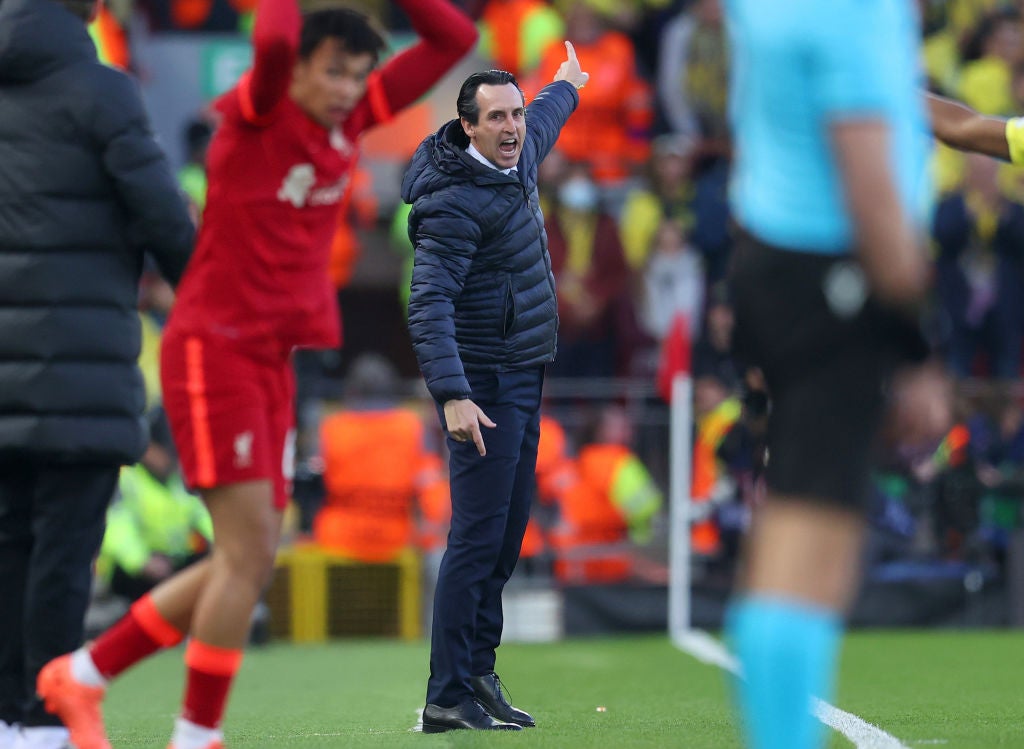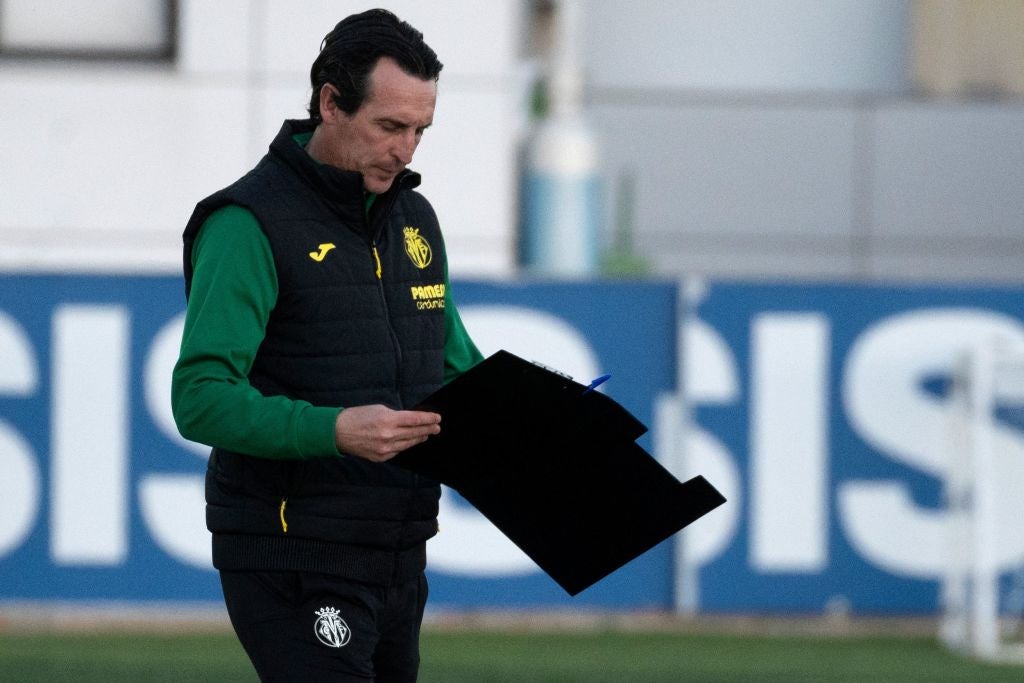
Unai Emery summed it up fairly well in his post-match press conference last week. “We wanted to win, we weren’t able to. We wanted to draw, we weren’t able to. We wanted to keep the score down to one, we weren’t able to. We wanted to score and couldn’t.” In other words, things have not exactly gone to plan for Villarreal in this Champions League semi-final tie so far. “But at home,” he added, “let’s see what we can do.”
There were parts of the first leg at Anfield that resembled one of Liverpool’s more straightforward Premier League engagements this season. Pick whatever statistic you want - shots, possession, expected goals - and they were clearly the superior of the two sides. Villarreal pressed ever so slightly more, closing down 141 times compared to Liverpool’s 139, but when you consider that they spent three-quarters of the game without the ball, that tells its own story. This was a good old-fashioned bus parking.
Villarreal’s approach was reactive in the extreme, defined entirely by the damage that Liverpool could do to them rather than what damage they might do to Liverpool. That apparent lack of ambition has been criticised by some in the days since, and in one case, so vociferously that the club themselves felt compelled to respond. A video of their supporters in the Anfield Road end applauding the players at full time was shared across Villarreal’s social media channels and captioned with: “Try telling these fans yesterday was a disgrace”.
The criticism of their approach misses the mark. Villarreal could not win the tie at Anfield but they could certainly lose it. Very few coaches would have done differently in Emery’s position given the difference in talent and resources. Up against a vastly superior opponent, capable of tearing through them to establish a commanding lead, and playing away from home in the first leg, they did not have a much of a choice but to bunker down and try to keep the damage to a minimum. And Villarreal do not have much of a choice when it comes to the return leg this evening either, only this time the equation is reversed.
Two goals down at Estadio de la Cerámica, Emery and his players know that they have to take more risks than they did at Anfield if they want to reach a historic, first-ever Champions League final. Emery was already looking ahead to that very challenge last week. “I want to play, I want to be involved, I can’t wait to get the game underway,” he said practically as soon as the final whistle had sounded. “I want to prepare for it and for you to see we can take the game to them.” If that sounds unlikely on the first leg’s evidence, it isn’t.
The popular image of Villarreal that has formed during their run to this year’s semi-finals is not an entirely accurate one. Though they embraced underdog status against Juventus, Bayern Munich and especially during last week’s first leg, they are a different team in La Liga. Out of possession, they do not park the bus but press high and press heavy, with the fifth-most turnovers high up the pitch. In possession, long, intricate passing sequences are more common than the direct approach adopted at Anfield. Only Real Madrid and Barcelona have a higher xG total domestically than the team that mustered just one shot on goal at Anfield.

A big reason for the discrepancy between their domestic performances and those against elite opposition in the Champions League is their manager. In a European football landscape where many of his contemporaries are considered idealists, Emery has earned a reputation for pragmatism. Rather than any overarching philosophy, he is happy to adapt to the strengths and exploit the weaknesses of a specific opponent. Before the Europa League final in 2019, he said he wanted his Arsenal players to become a ‘chameleon’ team, one that was “able to play in possession, in static attack against close opponents, or to counter-attack.”
Arsenal never mastered either of those styles under his stewardship but that adaptability was always the intention, and it is perhaps why his sides have proven to be such formidable opponents in the knock-out stages of European competitions. Emery clearly has a talent for zeroing in on opponents and devising a tactical scheme to get the better of them over 90 or 180 minutes. The defeats of Bayern and Juventus - not to mention last year’s Europa League triumph or three more in the same competition with Sevilla - demonstrated that much, even if you could not tell at Anfield last week.

A tactical shift to a more expansive, attacking style to suit the circumstances is not beyond the realms of possibility for this chameleon of a team. This second leg could look quite different to the first. Villarreal cannot abandon the organisation and discipline of the first leg but will aim to look more like their usual selves too. “Tomorrow we have to play a tremendous defensive game, brutal, different from Liverpool and, from there, to also be able to find something that we didn’t find there, which was our game,” Emery said at his pre-match briefing yesterday.
The problem with that is obvious, though: Villarreal set up at Anfield in the way they did for a very good reason. By taking more risks, they create more opportunities for Liverpool to punish them. By attempting to close the two-goal deficit, they are in danger of widening it. Emery’s side require two to force extra time and penalties, three to go through in 90 minutes. It is hard to see them getting that far without at least conceding once.
It is a tall order. Villarreal were not fancied to get this far, but to now go further seems unlikelier still. “Logically, for us to be here, the team has made a great effort, but to pass this would be excellence. We work to be better. I don’t know if we’ll be able to,” Emery conceded. “We have to play a perfect game.” Everything has to go right, a week after just about everything went wrong. And even if this proves to be a different game to the first leg, it is likely to produce a similar result.







